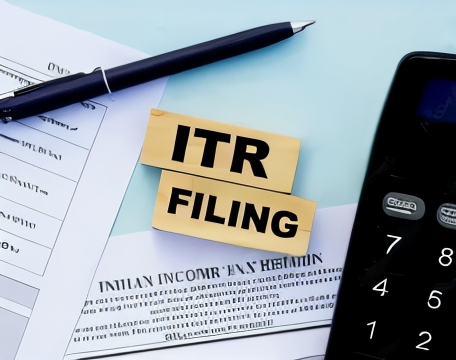
_________________________________________________________________________________________________________
As the July 31 deadline for filing Income Tax Returns (ITR) for the financial year 2024–25 draws near, taxpayers are being urged to tread carefully. Filing your ITR may seem routine, but a few common missteps can lead to hefty penalties, delayed refunds, or even scrutiny by the Income Tax Department.
With the ITR forms for FY 2024–25 already available, now is the ideal time to get your paperwork in order and file correctly the first time. Here are some of the most common—and costly—mistakes you should avoid this tax season:
1. Selecting the Wrong ITR Form
One of the biggest and most frequent errors is using the wrong ITR form. There are seven forms, each tailored to different types of income and taxpayer categories. Filing with the incorrect form can invalidate your return, requiring you to revise and refile it. Use the form that matches your income profile—whether it includes salary, business income, rental earnings, or capital gains.
2. Missing the Deadline
The last date to file your return for FY 2024–25 is July 31, 2025. If you miss this deadline, you could face penalties of up to ₹10,000. Even worse, you may lose the right to carry forward losses or claim certain deductions. Filing early ensures you avoid the rush and gives you time to correct any errors.
3. Not Reporting All Sources of Income
Forgetting to include income from fixed deposits, savings accounts, rental properties, or capital gains can trigger a mismatch with the Income Tax Department’s records. Always declare all sources of income—even if tax has already been deducted—so your return remains accurate and compliant.
4. Skipping Return Verification
Filing your return is not the final step. You must verify your ITR for it to be processed. If left unverified, your return is treated as invalid. You can easily verify your return online using Aadhaar OTP, net banking, or other e-verification options available on the income tax portal.
5. Ignoring Form 26AS and AIS
Before you file, take time to review Form 26AS and the Annual Information Statement (AIS). These documents summarize your tax credits and financial transactions. Failing to reconcile your return with these statements can lead to mismatches and possible notices from the tax department.
Conclusion
Filing your ITR is not just a formality—it’s an important responsibility. Starting early, understanding which form to use, reporting all income, and verifying your return can make the process smooth and penalty-free. With just a few extra steps and attention to detail, you can ensure compliance and avoid unpleasant surprises down the road.
Stay informed, stay accurate, and file smart this tax season!
📌 Disclaimer
The information provided in this blog is for general guidance and educational purposes only. It should not be considered as professional tax advice or legal opinion. For personalized assistance based on your individual or business tax situation, please consult with a qualified tax consultant or reach out to KVSTAX CONSULTANCY directly.
